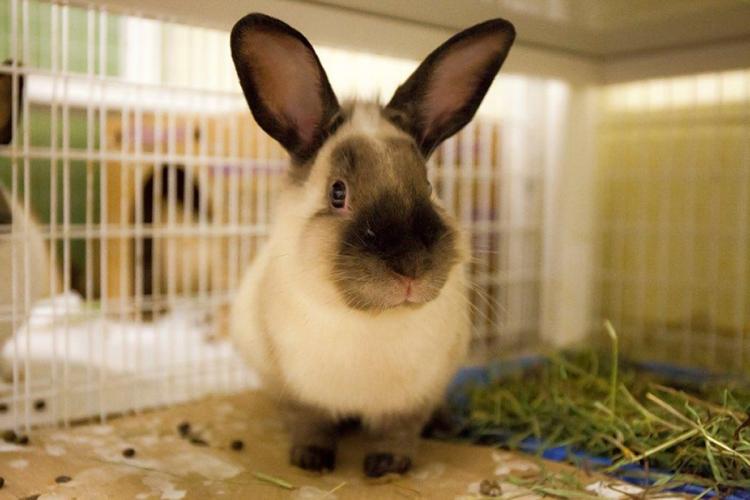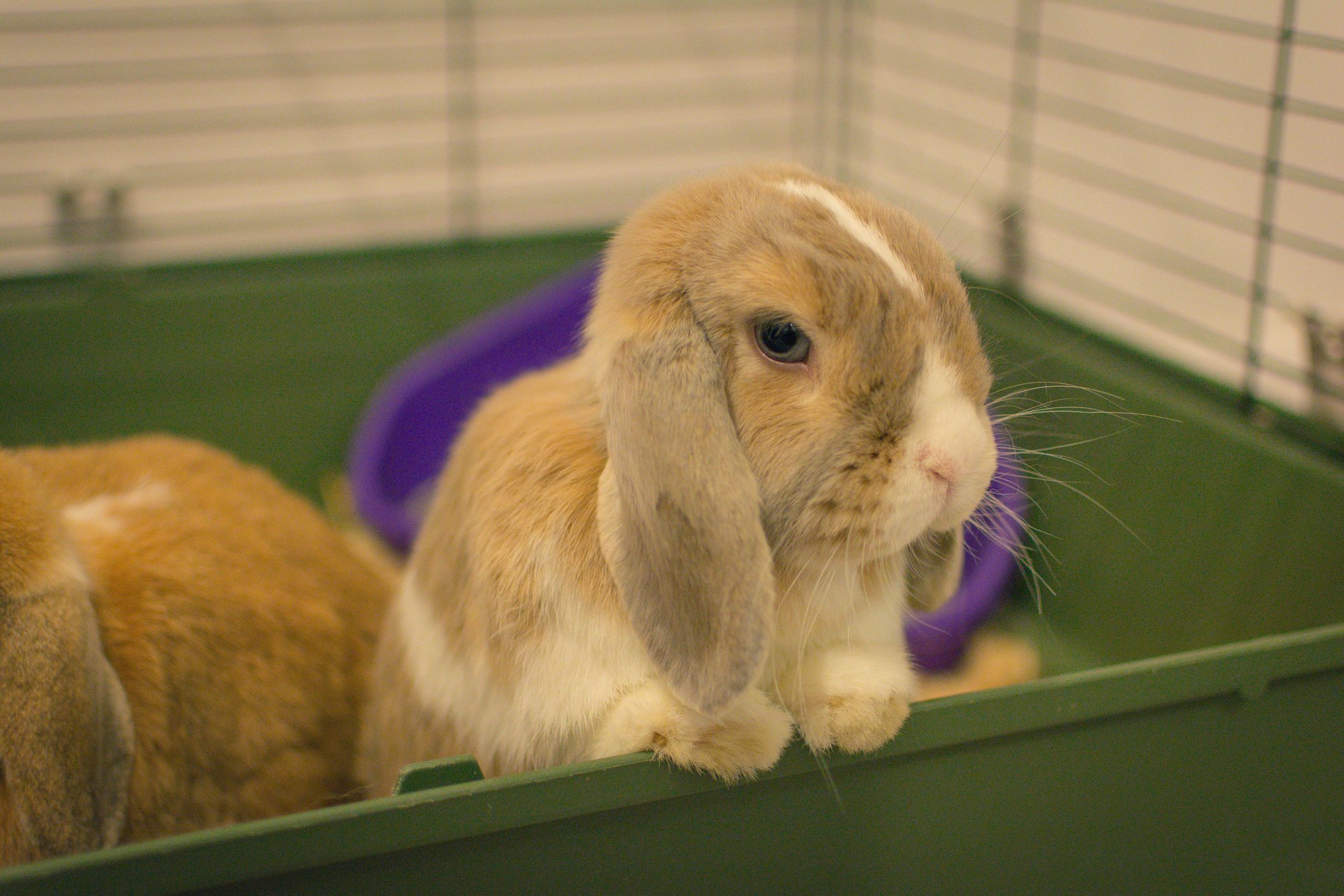Even though Easter was a few weeks ago, there are plenty of rabbits at your local shelter waiting to find their forever homes.
People think rabbits are cute and make the perfect Easter gift, but don’t realize that they take just as much work as any other pet. Thinking about adding to your family?
Here are some things that you should know about bunnies before you adopt.
1. Energizer Bunny
You can’t just keep bunnies in a cage all day long. If they’re in a confined space for too long, they’ll get super wiry and start to act out. If you have an open cage, they may even attempt (and eventually succeed) to escape and get into things they shouldn’t.

If you’re not home most of the day, I would recommend getting a cage with a playpen area on it, so the bunny is able to have more space. But when you are home, make sure to let them have some free roaming and exploring time.
2. Everything’s a Chew Toy
Bunnies have super sharp teeth, and they need to keep them filed down, so they’ll chew on whatever they come across. Some bunnies are better than others, but when the hoppy child is exploring the house, make sure to hide all of your chargers and wires, because they’ll snap them in half with one bite.
They’ll also chew on carpeting, wood and blinds, so I recommend having them confined to areas of the house where they’ll cause the least destruction, or, if that is unavoidable, keep a close eye on them while they’re out of their cage.
3. Vet Problems
Yes, just like cats and dogs, bunnies need to go to the vet regularly, but many vets lack experience with rabbits. The carrot crunchers are super prone to getting cancers, especially reproductive ones, so make sure you get them fixed ASAP if they aren’t already, as doing so can extend their lives by years.
If you choose not to get them fixed, don’t anticipate your rabbit living for more than three-to-five years. If you do get your furry friend snipped, they can have the life expectancy of cats and dogs, sometimes even longer, depending on the breed.
4. Tricks Are for Rabbits
Rabbits can be trained to do almost anything. Litter training can be difficult before they’re fixed, but with some work, it can be done, to the point where they’ll do their business in the same corner of their cage/litter box each time.
Aside from litter training, you can teach your two-eared friend commands just like you would a dog. Mine responds to her name and “no,” and she can beg and “stay” for a short amount of time. They’re pretty smart animals.
5. Hidden Figures
Bunnies can take a while to adjust and open up to you. Don’t be surprised if they hide in their cage for the first few days after bringing them home. If you end up moving at some point, do not be surprised if they repeat the behavior again. The bewhiskered breeders feel vulnerable in unfamiliar areas, and they’ll take a while to realize it’s safe and that they can start exploring their new area.

Same goes for their owners. They’ll typically warm up to one or two people rather than the whole family. If there are younger kids in the house, they’ll typically stay away from them as well. I’ve had mine for six years, and she’s still leery of my parents and siblings, but I could do anything to her and she’d be okay with it.
6. Territorial by Nature
Rabbits can be very territorial and temperamental. If they’re in their space chilling and don’t want to be bothered, they’ll let you know. If you approach them, don’t be surprised if they growl and charge at you. If you ignore that, don’t be surprised if you get bit.
Their moods can change instantly—one minute you can be petting them and giving them all your love, and the next they’ll want to be left alone. Don’t be surprised if they growl and charge you while you’re trying to feed them as well; if you try to remove their food bowl, they get super mad, and if you reach into their space, they may think you’re trying to pick them up (which they hate, FYI), so they’ll try to defend themselves.
Eventually, they’ll know you’re not trying to hurt them, but to avoid such violent behavior, try to make sure the same people interact and feed them on a regular basis. If a stranger tries to care for them, the bunny will flip out and possibly attack, which will stress everyone out. If you go on a vacation, make sure the caretaker is introduced to your pet beforehand.
7. Eat Like a Rabbit
These Easter mascots eat more than carrots. A typical diet is a small amount of rabbit feed each day, along with plenty of hay. Most foods have dried veggies in them, which are crucial to their health and make a nice snack. Fresh fruits and veggies also make great treats. Avoid iceberg lettuce though, because too much can be harmful to their diet, whereas blueberries, bananas, apples (minus the core and skin), yogurt and basil make great treats.
8. Bone Up on Bunnies
Though this is general information, there are many different rabbit breeds, and they come in all shapes and sizes, so it’s best to know which breeds will work best for you.
Some rabbits will grow to be the size of cats, while others will only grow to be a few pounds. Get to know a little bit about each breed before you visit the shelter, so you know you won’t be bringing home the wrong rabbit. Though bunnies take a lot of work, with some of your time, patience and love, they can become your best friend and an amazing pet.


















[…] https://studybreaks.com/college/rabbits/ […]